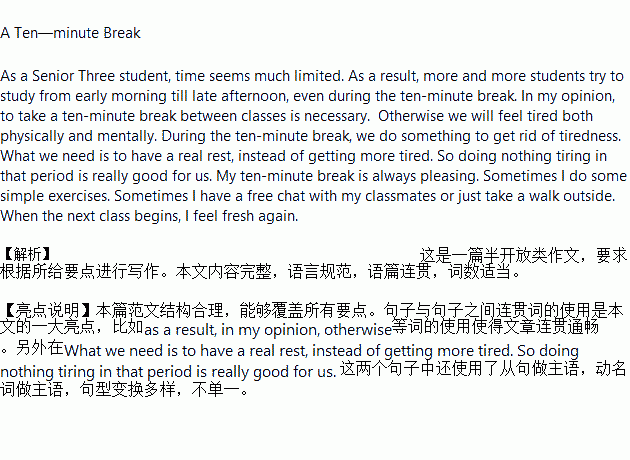题目内容
请你以“A Ten-minute Break”为题,按下列要点写一篇短文,让同学们从中有所启发。要点如下:
1.十分钟的课间休息很有必要。
2.要注意适当的休息方式。
3.你是怎样利用这十分钟的。
注意:①开头已经给出,不计入总词数;②词数 100 左右。
A Ten—minute Break
As a Senior Three student,_____________________________... ...
练习册系列答案
 天天向上一本好卷系列答案
天天向上一本好卷系列答案 小学生10分钟应用题系列答案
小学生10分钟应用题系列答案
相关题目
5.Naylor ________,in a letter to his teacher,that he was addicted to the Internet.( )
| A. | acknowledged | B. | received | C. | appreciated | D. | classified |

